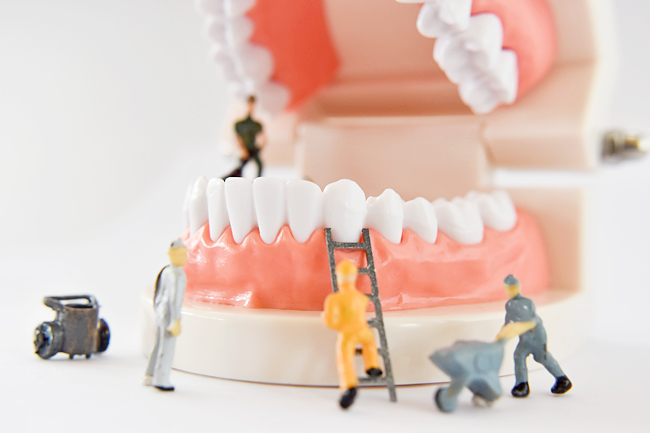Rizal Faisal
The Ministry of Health (MoH) has continued raising awareness for the prevention of diseases with modifiable risk factors. This includes oral health, which was emphasised in a recent commemoration of World Oral Health Day 2023 at the Health Promotion Centre.
At the event, Acting Permanent Secretary at the MoH Dr Ang Swee Hui underlined the importance of oral healthcare towards maintaining general health, in which bad oral hygiene can lead to other deteriorations in other aspects of life.
“Tooth decays or gum infections not only causes discomfort, but affects an individual’s quality of life,” he said.
“It can affect one’s chewing movement while eating, leading to loss of appetite and sleep deprivation and ultimately interfering with school or work performances. It also leads to issues in mental health, an individual’s social involvement, low self-esteem due to the unappealing dental aesthetics.”
The ministry focussed on oral hygiene care in every stage of life in this year’s World Oral Health Day celebration. Findings from the National Oral Health Survey of Brunei Darussalam conducted from the years 2015 to 2017 show that almost two-thirds of adults suffer dental caries.


The research also reported 30 per cent of adults suffer periodontal diseases. Dental caries disease in children was found to have decreased, however, there is an increase in children’s intake of sugary drinks and food.
In addition, it was found that 37 per cent of adults made dental appointments within the past 12 months and only 50 per cent in children made visits to the dentists in the past two years.
Dr Ang said that oral diseases can be prevented. “One of the most effective ways to ensure and optimise oral healthcare is by the use of fluoride, especially water containing fluoride and toothpastes with fluoride,” he said, explaining that fluoride strengthens teeth and prevents tooth decay.
It is highly recommended to brush teeth twice a day for at least two minutes using soft bristled toothbrushes and toothpaste with fluoride. “The use of ‘fluoride varnish’ gel which can be applied by a dentists or dental assistant twice a year is proven to be effective in lowering dental caries by 30 per cent,” Dr Ang highlighted.
The acting permanent secretary underlined the importance of understanding the effects of sugar in dental caries. He announced the government’s stance in the fight to control excessive sugar intake by implementing sugar tax in which the Royal Customs and Excise Department reported has seen a decrease in the importation of sugared drinks by 7.8 per cent from the fiscal years 2017-2018 to 2018-2019 since its enforcement. The MoH has capped the sales of sugary food like candies in school canteens to control sugar consumption in children.
According to the ministry’s citation of the World Health Organization’s (WHO) recommendations, adults and children are advised to lower their sugar consumption by 10 per cent from the seven daily energy intake, for about 12 teaspoons of sugar (50 grammes) for adults.
Diabetes, smoking and poor dental health are among several contributing factors which affects one’s gum health. The ministry has also implemented a Quit Smoking Clinic which has been set up in all health centres nationwide, as tobacco use has also been identified as the contributing factor to mouth cancer.
MoH advises that the most effective way in maintaining oral health is one’s own personal initiative and discipline.
Dr Ang recommended that the Dental Services Department of the MoH to conduct another National Oral Health Survey as the one done prior was about 10 years ago. He added that data gathered can be used to evaluate status and trends of oral diseases and its impact on the community.
“Such data is essential in the planning of various oral health programmes and effective interventions in order to tackle oral health issues faced by the public,” Dr Ang further reminded.
The scientific data will also enable the ministry to compare with other countries in the region and globally.
In addition, this will also help the Dental Services Department to achieve the ‘gold standard’ which is practiced in ASEAN and other countries worldwide by exercising an ‘evidence-based approach’.



